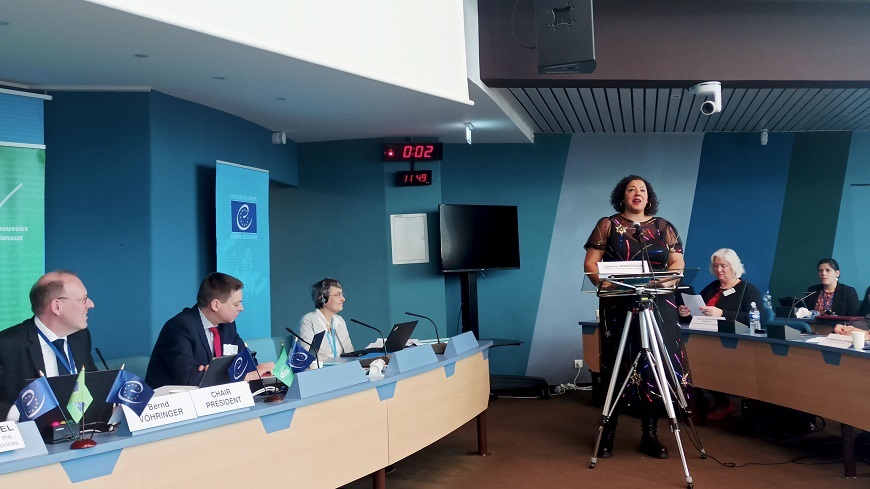On 22 March 2023, during the 44th session of the Congress, the Chamber of Local Authorities held again a debate on the question of the direct election of mayors. In 2004, the Congress expressed its support for direct election, however, the system is not unanimously accepted by all the member States, particularly not in the Netherlands, where mayors are not elected, but appointed by royal decree. The debate highlighted both the advantages and the drawbacks of direct election and laid bare the importance of local political traditions.
The mayor of the municipality of Haarlemmermeer in the Netherlands since 2019, Marianne Schuurmans, is also the secretary of the professional association of mayors in the Netherlands. Highlighting the special nature of the Netherlands’ political system, she stressed the need to look at the question of the election of mayors in the context of the unique political traditions of each European country. Compared to other political and administrative institutions, mayors in the Netherlands were regarded more favourably by the citizens, precisely because they were not part of the party-political system. The apolitical nature of mayors, who had the general interest of their locality and its inhabitants at heart, fostered stability and dialogue at local level, just as the King’s Commissioner did at regional level. Marianne Schuurmans was also at pains to point out that the selection of the mayor was the municipal council’s task even though the appointment was validated by the Minister of the Interior and made official through a royal decree. The municipal council proposed a mayor to be appointed on the basis of professional criteria but could also propose that he or she be dismissed if there was a problem. Accordingly, she argued that the procedure was not at variance with the European Charter of Local Self-Government. “Why then would you want to change a system that works and is trusted by the citizens?”, she said.
As we heard in the address given by the Mayor of Liverpool, Ms Joanne Anderson, who was elected directly in 2021, the direct election system is sometimes tested and then rejected. Liverpool City Council decided to reinstate indirect election of Liverpool’s mayor for the next elections, particularly because of the abuses committed by the previous mayor, who in the meantime had been brought to justice. Although direct election increased transparency and gave mayors more popular legitimacy, it sometimes entailed potential abuse of authority. On the other hand, directly elected mayors were in a more stable position than those elected indirectly by a political majority, meaning that they could pursue a more long-term strategy. However, the pros and cons should be weighed up on a case-by-case basis for each country, or even for each municipality.
In the case of the Municipality of Mykonos, as for Greece as a whole, the pros have won out a long time ago and direct election of mayors is now the system that has been adopted. Konstantinos Koukas, who was directly elected Mayor of Mykonos in 2014 and 2019, highlighted the benefits of a mandate given directly by the citizens to a person representing the municipality as a whole. He pointed out, however, that a Law of 2018 currently presented a problem for Greece’s directly elected mayors because it had established a second round of voting for the mayor following the appointment of the municipal council on the basis of a proportional system applying to the results of the first round. The problem was clearly illustrated by the municipality of Thessaloniki, where 16 municipal lists had competed in the first round and the mayor elected in the second had found himself without a majority able to support his policies. So as to avoid this type of institutional deadlock, the current Greek government had adopted a law which was to apply from the municipal elections in October 2023 on and now ensured that directly elected mayors would have a political majority.
In her statement, Ms Belinda Gottardi (Italy) drew attention to the positive aspects of direct election, which was the system that had applied in Italy for the last 30 years, “from Rome down to the smallest provincial villages”. Other participants did express doubts, however, as to whether this principle was universally applicable, particularly when voters had a choice between two poor candidates or even when they are faced with a single candidate. The President of the Chamber of Local Authorities, Bernd Vöhringer (Germany, EPP/CCE), closed the meeting and announced that a report on this matter was being drawn up, to be presented to the Chamber at some point in 2024.
Statement by Marianne SCHUURMANS-WIJDEVEN
Statement by Konstantinos KOUKAS
Mediabox interview with Joanne ANDERSON
****
44th Session
Agenda – Web file – Multimedia (Live webcasts, interviews, videos and photo)




